 The COVID-19 pandemic is a clear example of how healthcare practitioners require swift access to enormous amounts of diverse information to efficaciously treat patients. They must synthesize individual data (vital signs, clinical history, demographics, and more) with rapidly evolving knowledge about COVID-19 and make decisions relevant to the conditions from which specific patients suffer.ners rely on point-of-care decision support systems to accelerate patient-care analysis and to scale treatments for intake quantities of global pandemics. They analyze a plethora of inputs to produce tailored treatment recommendations, in near real-time, which significantly enhance the quality of treatment.
The COVID-19 pandemic is a clear example of how healthcare practitioners require swift access to enormous amounts of diverse information to efficaciously treat patients. They must synthesize individual data (vital signs, clinical history, demographics, and more) with rapidly evolving knowledge about COVID-19 and make decisions relevant to the conditions from which specific patients suffer.ners rely on point-of-care decision support systems to accelerate patient-care analysis and to scale treatments for intake quantities of global pandemics. They analyze a plethora of inputs to produce tailored treatment recommendations, in near real-time, which significantly enhance the quality of treatment.
Ontologies Create The Foundation For Complex Data Analysi
The underlying utility of these systems is widely based on the vast quantities of healthcare knowledge analyzed. Such knowledge must be uniformly represented (at scale) with rich, contextualized descriptions of the full scope of clinical trials, pharmaceutical information, and research germane to the biomedical field that expands daily with each published paper and new findings. This knowledge should be rapidly accessible, reusable, and a sturdy foundation on which to base present and future research in this field, encompassing everything from long-standing maladies like peanut allergies to emergent ones like COVID-19.
Ontologies—evolving conceptual data models with standardized concepts and uniquely fulfill each of these requirements to fuel healthcare research and point-of-care decision support systems, helping save lives when they need saving most.
International Ontology Sharing Is Becoming A Reality
A consortium of researchers recently formed an organization dedicated to standardizing how scientists define their ontologies, which are essential for retrieving datasets as well as understanding and reproducing research. The group called OntoPortal Alliance is creating a public repository of internationally shared domain-specific ontologies. All the repositories will be managed with a common OntoPortal appliance that has been tested with AllegroGraph Semantic Knowledge Graph software. This enables any OntoPortal adopter to get all the power, features, maintainability, and support benefits that come from using a widely adopted, state-of-the-art semantic knowledge graph database.
The first set of ontology repositories making up the OntoPortal Alliance include BioPortal (biomedical and other ontologies used internationally), SIFR (biomedical ontologies in the French language), BMICC MedPortal (biomedical ontologies focused on Chinese users), AgroPortal (ontologies focused on agronomy and related sciences), and) EcoPortal (ontologies focused on environmental science. The OntoPortal Alliance will be adding more ontology repositories and is open to working with researchers in other domains who want to offer ontologies publicly.

